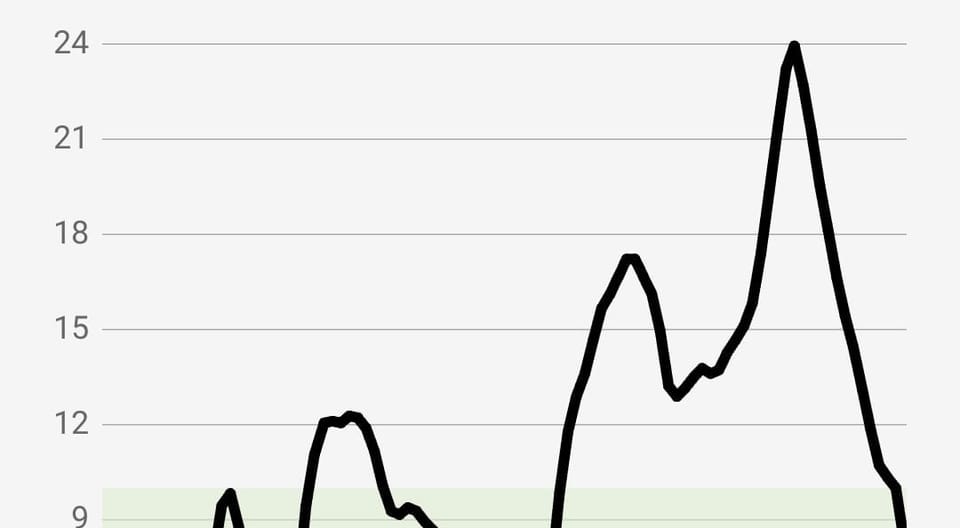Instant insulin resistance

Have you ever had this situation: you feel perfectly fine, relaxed and calm, you eat your lunch, you bolus properly, but then... A huge spike that just won't come down. No mater how much you bolus, insulin just doesn't seem to have any impact.
Until after a few hours you manage to get it back to the green (target range) level.
So what is happening? It just makes no sense. You pre-bolus properly, you even do a correction bolus, but nothing happens. Sugar stays high.
I went through this so many times. And it happened totally randomly. Sometimes during breakfast. Sometimes during lunch. Sometimes all day. Sometimes on a Saturday. Or sometimes when I eat at my mom's. Sometimes the condition stays there even for more than a day!
I've been trying to figure it out for years. And I believe I finally cracked it.
Let me first explain the background a little bit better. My BIG food weakness are nuts. And I always add nuts to my breakfast and also to my lunch. Very often, I would eat nuts also in between meals, because of the snacking urge. Do you know that feeling? When you need some soothing and food is the first that comes to your mind. Of course I pick nuts, they are low carb food, they won't spike my sugars and... I LOVE NUTS!
Well, the truth is that fats are a big deal in managing your blood sugars! I'm sure you've already heard about insulin resistance and how it's connected to too much fat in the body and obesity. Researchers investigated this further and found out that insulin resistance is actually instant. When you eat too much fat in a day, your insulin becomes inefficient (no matter if your pancreas produces it or if you inject it), your cells become insulin resistant and don't respond good to insulin.
If you have a healthy pancreas that is normally producing insulin and you increase fats consumed in one day, your pancreas will increase production of insulin because the cells become insulin resistant. The result is that the body starts producing more insulin with a goal to decrease glucose levels.
So what does this have to do with us, diabetics?
The same process starts happening in a body of a diabetic. When we increase fats intake, the insulin we bolus will become less efficient and as a consequence glucose levels will be higher for the same amount of insulin. Even when we do a correction bolus, if there's still a lot of fat in the bloodstream, insulin won't have the effect that you are used to. BTW, on average, it takes 6 hours for fats to be removed from your bloodstream after a single meal, but our ability to process blood fats varies among individuals.
When I put all of these together, everything started to make sense. When I have a high-fat meal (whatever fats I have, can be healthy fats or unhealthy, but for me usually it's nuts or avocado), these fats will impact how my cells react to insulin.
I now understand what was happening. When I ate too much nuts during a meal, my sugars went up and didn't fall. Then I was bolusing corrections to bring it back down and at the same time snacking nuts (because I can't eat normally and let sugars go even higher, so nuts are a "perfect" snack) and this (fats) is exactly what was blocking insulin to do it's job. And my sugar stayed high. Sometimes for few hours, sometimes for whole day and sometimes (when I really ended just eating nuts all day), this continued into the night as well...
Of course you need healthy fats in your diet, I'm not trying to promote cutting fats completely, they are crucial for your energy level, hormone and gene regulation, brain function and absorption of fat-soluble vitamins. What's really important is to balance them well with the rest of your meal.
And how much that means for you? This is probably a million dollar type of question. My advice would be to test it yourself. Try different amount of fat in your diet and measure when your body still reacts good to insulin.
For me, it's 1 fist of nuts and a piece of 90% dark chocolate (also high in fat) for breakfast and 1 fist of seeds and a piece of dark chocolate for lunch. Additionally I use a little bit of oil for cooking, I eat avocados here and there and there's also some fat in tofu, yogurt and some other foods.
As soon as I increase either nuts, either chocolate or add too much avocado, I go to highs.
The amount of fat described above for my case doesn't create insulin resistance and as a result insulin works at it's best. I have more control over my sugars and significantly less broken days with high sugars that won't go down.

Member discussion